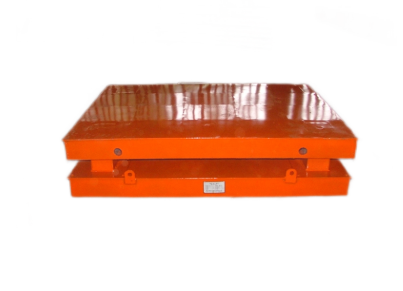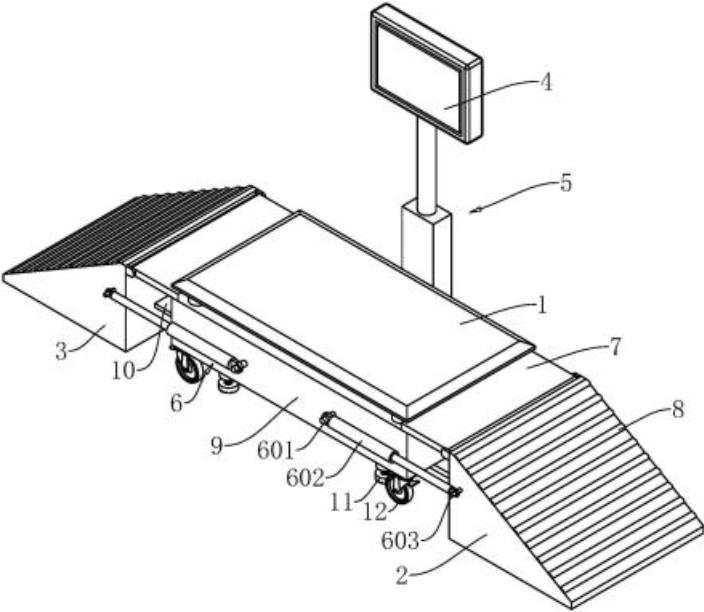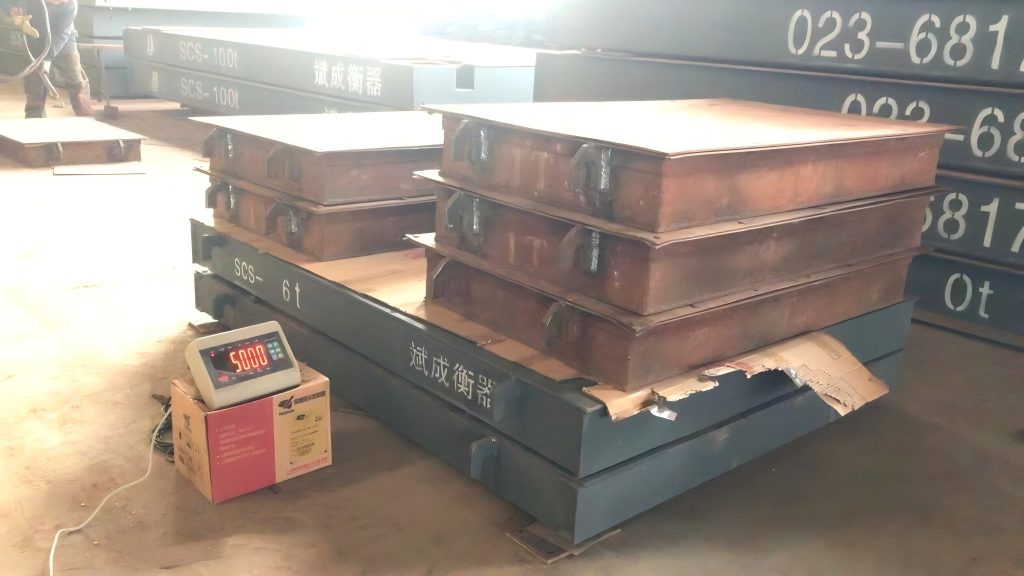Industrial Platform Scales Safety: Regulations, Load Limits, and Safe Operation Practices
Industrial platform scales are workhorses in countless industries, ensuring accurate weight measurements for everything from raw materials to finished products. But like any powerful tool, platform scales demand respect and proper handling to guarantee safety. This article explores the key aspects of platform scale safety, from regulations and load limits to safe operation practices and choosing a reliable manufacturer.
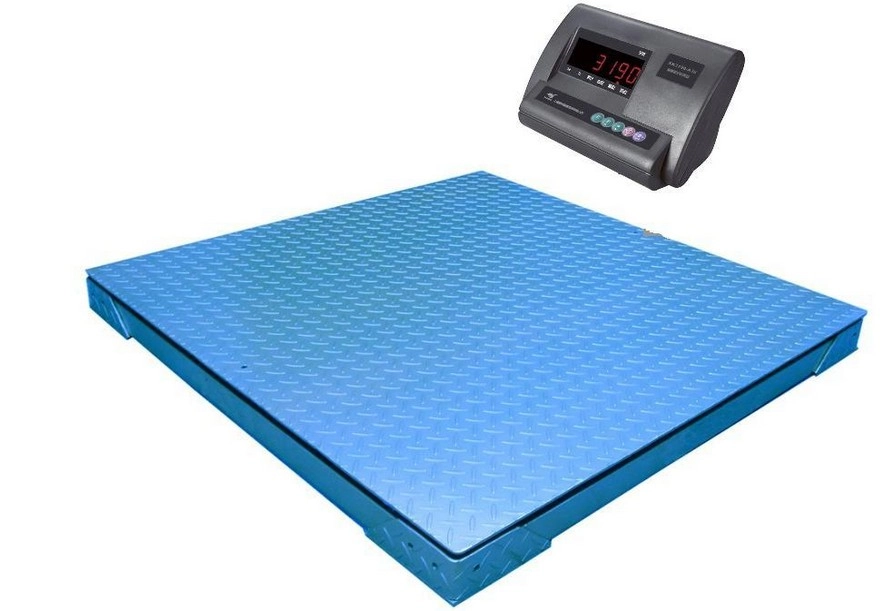
Industrial Platform Scale Safety Regulations
Understanding the regulations governing platform scales is the first step to safe operation. These regulations can vary depending on your location but generally fall under the purview of organizations like the International Organization for Standardization (ISO). Here are some key areas to consider:
- Accuracy and Calibration: Ensure your scales are regularly calibrated to meet the required accuracy standards set by regulatory bodies. Depending on your location, this could be the National Institute of Standards and Technology (NIST) in the United States or the National Measurement Institute (NMI) in Australia. Following recommended calibration intervals is crucial for maintaining accurate weight readings, which are essential for fair trade practices and compliance with industry regulations.
- Capacity Limits: Exceeding a platform scale’s capacity limit is a major safety risk. Regulations may mandate clear weight limit signage to be displayed prominently on the scale itself. Additionally, overload protection features like automatic shut-off mechanisms might be required to prevent damage and potential accidents in case of excessive weight. Consulting the relevant regulatory body or a qualified scale supplier can help you determine the specific requirements for your region.
- Material Handling: Lifting and maneuvering heavy objects onto and off the platform scale can lead to injury. Regulations might address factors like platform height. Ideally, the platform height should allow for easy loading and unloading without excessive bending or reaching. Slip resistance is another crucial consideration. The platform surface should have a proper tread pattern or coating to minimize the risk of slips and falls, especially in wet or oily environments. Specific regulations regarding platform design and materials may vary by location, so consulting the relevant authorities is recommended.
By familiarizing yourself with the regulations in your area and ensuring your platform scales comply with them, you can create a safer work environment and avoid potential legal or financial repercussions.
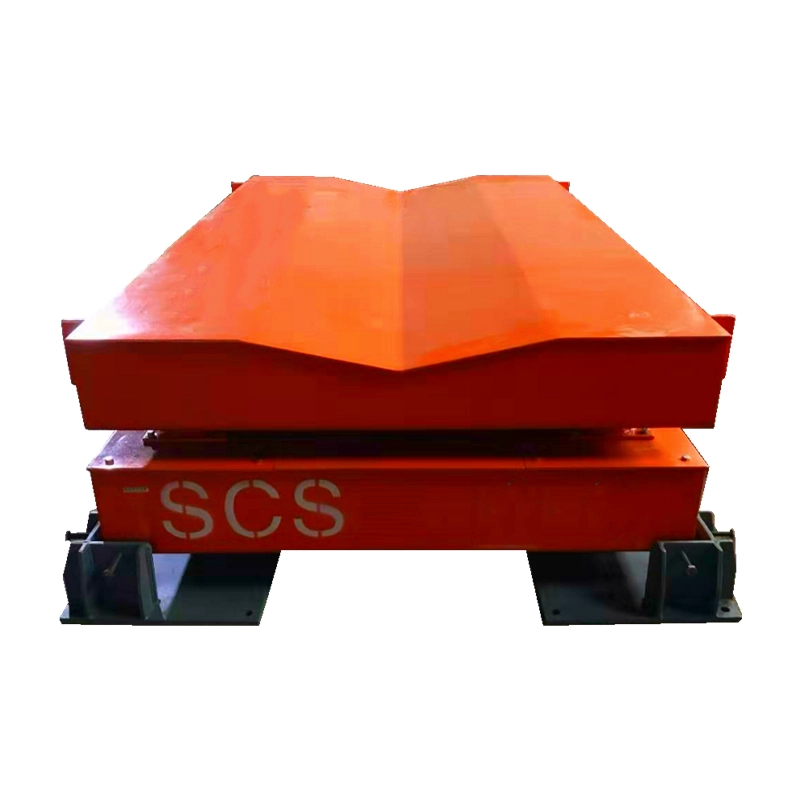
Load Limits: The Crucial Factor for Industrial Platform Scale Safety
Industrial platform scales are designed to withstand tremendous weight, but even the most robust models have limitations. Exceeding a platform scale’s capacity limit is a major safety risk with potentially severe consequences. Let’s delve deeper into why load limits are crucial and the repercussions of ignoring them.
Structural Strain and Equipment Damage
Platform scales are built with a specific weight capacity in mind. When that limit is surpassed, the scale’s internal components experience excessive stress. This can lead to permanent structural damage, including cracks in the platform itself or warping of the load cells – the sensitive sensors that measure weight. Damaged scales become inaccurate, posing a risk of incorrect weight readings which can disrupt inventory management, billing processes, and even product safety. In extreme cases, a compromised platform might collapse entirely under excessive weight, potentially causing injuries and property damage.
Operator Injury and Safety Hazards
A platform scale under undue stress becomes unpredictable. Components may malfunction, causing objects to shift or fall unexpectedly. This can lead to serious injuries for workers loading or unloading the platform. Additionally, overloaded scales can tip or become unstable, creating a dangerous situation for anyone in the vicinity.
Product Damage and Financial Loss
When delicate items are placed on an overloaded platform, they are more susceptible to crushing or damage. This can result in lost inventory, wasted resources, and financial setbacks for your business. Furthermore, overloading a scale during product shipment can violate weight restrictions imposed by carriers, leading to fines or shipment delays.
The Importance of Clear Weight Limits and Signage
To prevent these safety hazards and financial losses, it’s crucial to always operate your platform scale within its designated weight limit. Reputable manufacturers will display the maximum capacity on the scale itself. Additionally, it’s advisable to post prominent signage in the surrounding area reminding operators of the weight limit. By keeping this information readily available, you can empower your workers to make safe loading decisions and avoid overloading the platform.
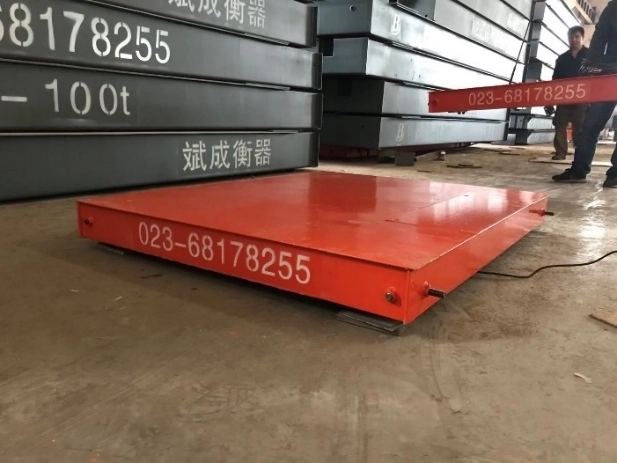
Safe Operation Practices for Industrial Platform Scales
Safe operation practices are the cornerstone of a secure and efficient working environment when using industrial platform scales. Here, we delve deeper into some crucial practices to keep your team and your products safe:
Proper Training
Equipping operators with thorough training is paramount. Training sessions should cover the specific functions and capabilities of the platform scale being used. This includes understanding the scale’s weight limit, its designated use (e.g., weighing pallets, and individual items), and any unique features it might possess. Additionally, operators should be trained on safe loading and unloading procedures. This involves techniques for centering loads on the platform, avoiding uneven weight distribution, and securing unstable items to prevent them from toppling over. Training should also emphasize the importance of proper communication. Operators should be encouraged to report any malfunctions, damage to the scale, or unsafe working conditions immediately.
Clear Work Area
Maintaining a clean and organized space around the platform scale is essential for preventing accidents. This means keeping the platform free of debris, electrical cords, or any obstacles that could cause someone to trip or slip. It’s also important to ensure adequate lighting in the weighing area to promote clear visibility and prevent operators from misjudging distances or platform edges. Furthermore, proper ventilation should be considered, especially when working with hazardous materials or in dusty environments.
Load Distribution
Even weight distribution across the platform is crucial for both safety and accurate readings. Operators should be trained on how to properly position loads to avoid exceeding the capacity limit on any one section of the platform. This may involve using dunnage (packing materials) to fill gaps or stabilize uneven loads. It’s also important to avoid placing excessive weight near the platform’s edges, as this can cause tipping or structural stress. Training should incorporate techniques for safely securing oversized or oddly shaped objects to prevent them from rolling off the platform during weighing.
Forklift Safety
When using forklifts to load or unload items on the platform scale, prioritizing safety is paramount. Operators should be properly trained in forklift operation and adhere to safe practices. This includes maintaining a slow and controlled speed while approaching the scale, ensuring proper balance of the load, and carefully maneuvering the forks to avoid damaging the platform or causing objects to fall. It’s also crucial to maintain a safe distance between the forklift and the operator while loading or unloading. Training should emphasize the importance of pre-operation checks on the forklift, ensuring proper tire inflation and functionality of brakes and steering mechanisms.
By implementing these safe operation practices and fostering a culture of safety awareness, you can significantly reduce the risk of accidents and injuries associated with industrial platform scales. Remember, a little planning and attention to detail can go a long way in creating a secure and productive work environment for your team.
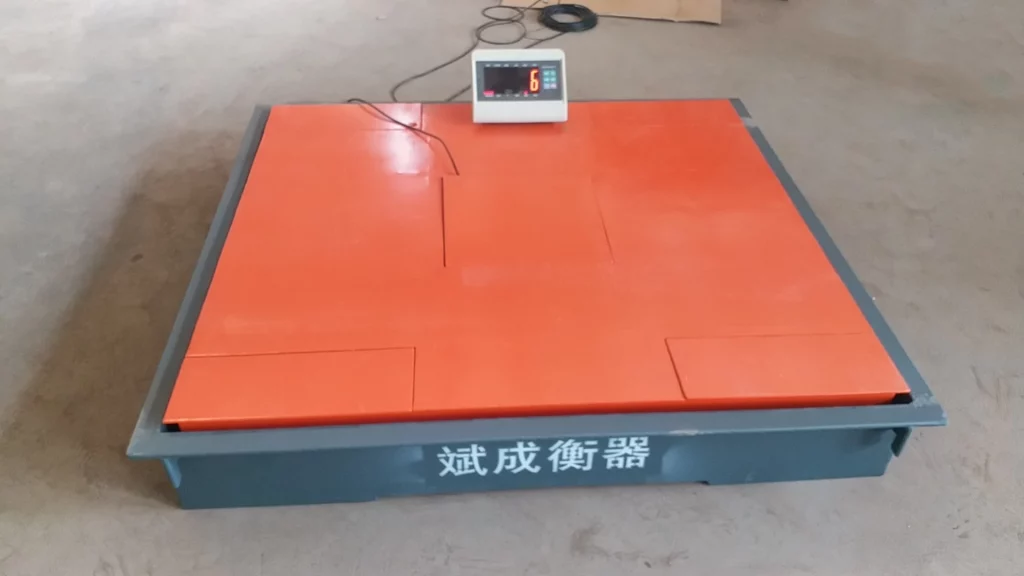
How to Choose a Reliable Industrial Platform Scale Manufacturer?
Selecting a reputable manufacturer is crucial for platform scale safety. Look for companies that go beyond just selling a product. Here are some key considerations:
- Safety Focus: Manufacturers that prioritize safety features and regulatory compliance are more trustworthy. Look for certifications from relevant organizations like ISO or NTEP (National Type Evaluation Program) in the US.
- Commitment to Training: Choose a manufacturer that provides training programs or materials for safe-scale operation. This demonstrates their dedication to your long-term well-being.
- Exceptional Customer Support: Having access to reliable support ensures you can address any safety concerns promptly. Look for manufacturers with responsive customer service teams and readily available technical support.
BINCEN is a leading manufacturer of industrial platform scales renowned for its commitment to safety, reliability, and exceptional customer service. They offer a wide range of platform scales to suit various industrial needs, all meticulously designed and constructed to meet the highest safety standards. BINCEN prioritizes operator safety by:
- Exceeding Safety Regulations: Their scales are not only compliant but often exceed industry safety benchmarks.
- Offering Comprehensive Training: BINCEN provides in-depth training programs to ensure your operators understand how to use their scales safely and efficiently.
- Unwavering Customer Support: Their dedicated customer support team is readily available to answer your questions and address any safety concerns you may have.
By partnering with a manufacturer like BINCEN, you gain peace of mind knowing your industrial platform scales are built with safety in mind. Contact BINCEN today to discuss your specific needs and find the perfect platform scale solution for your workplace.

